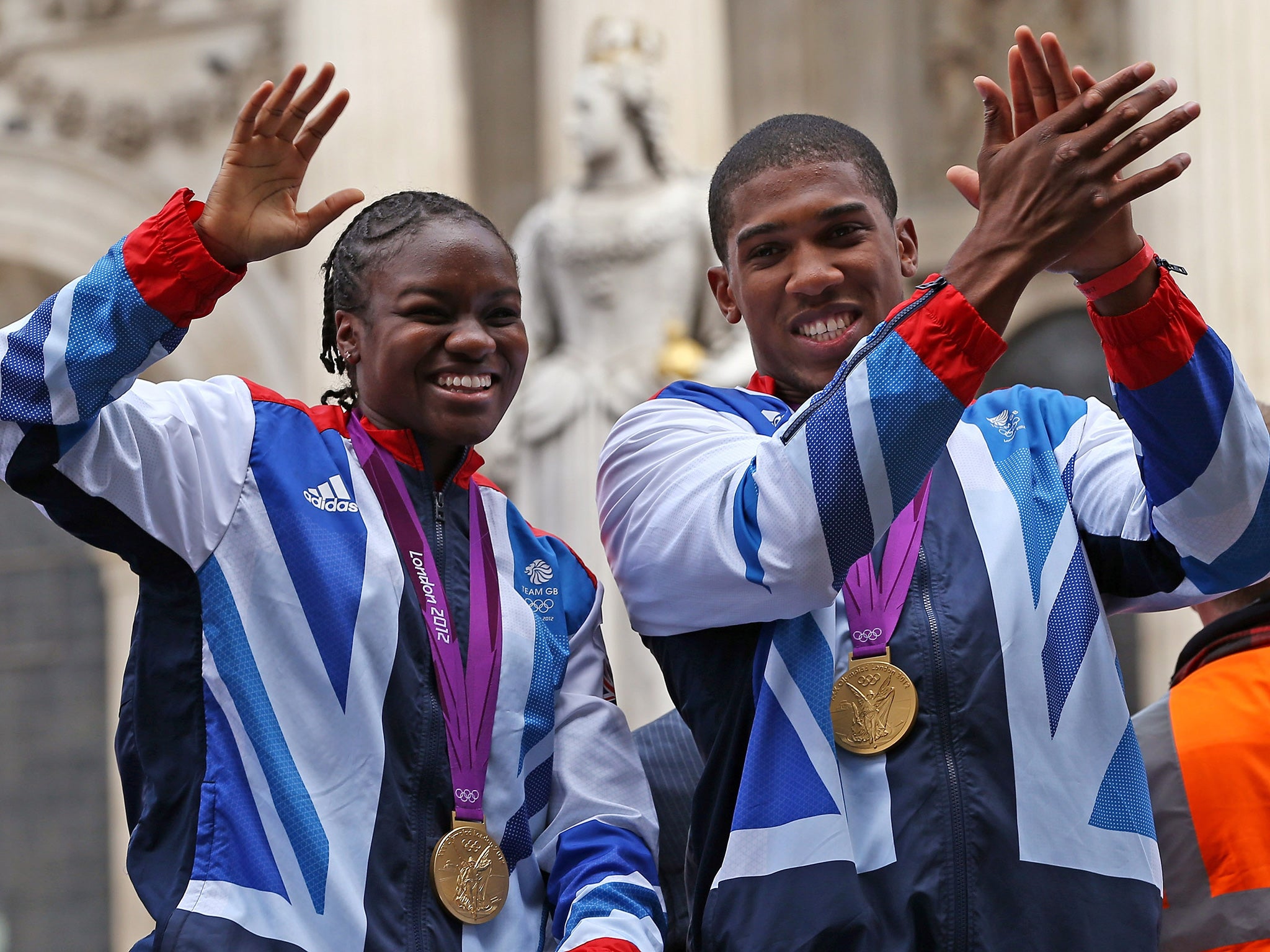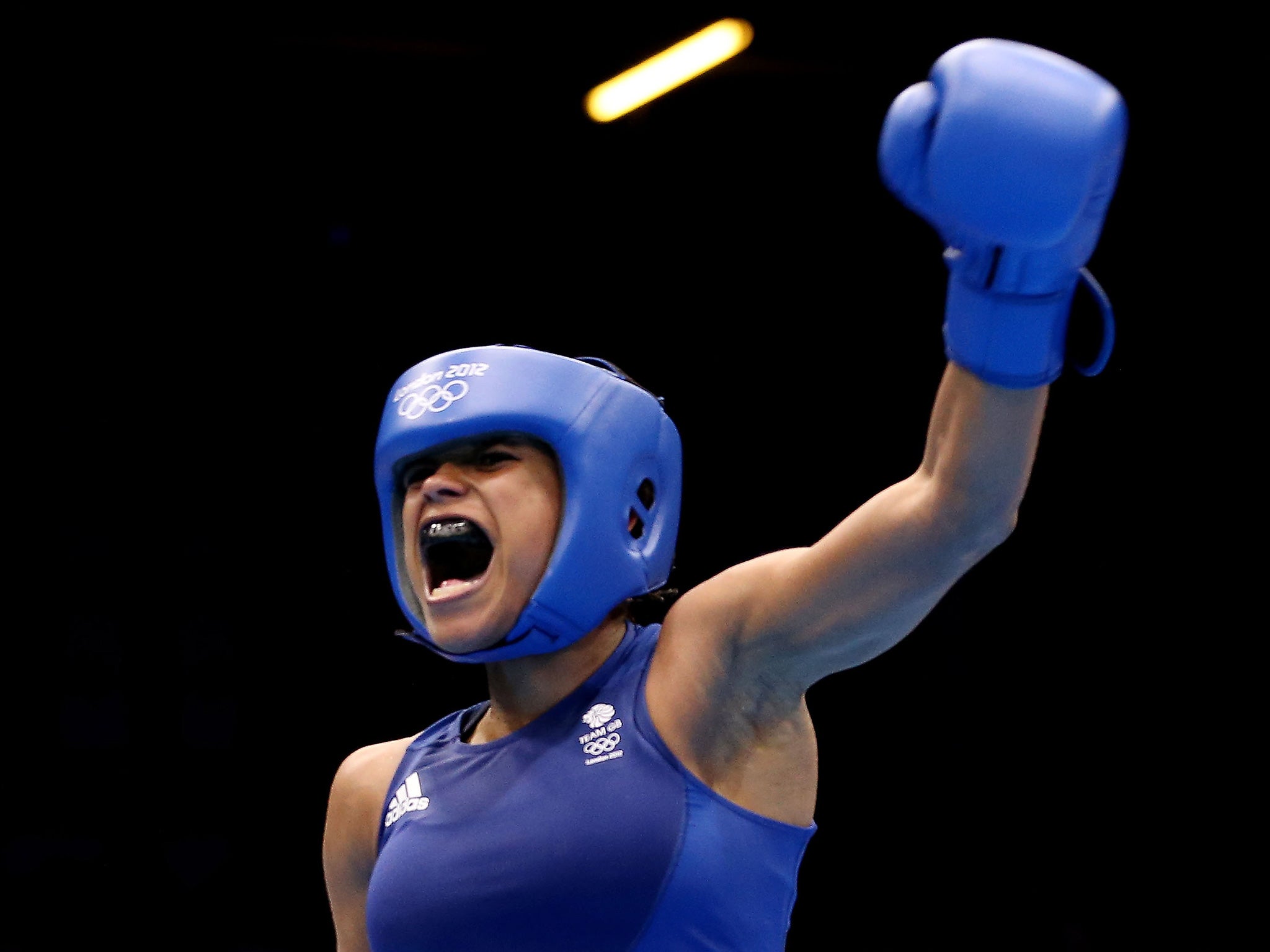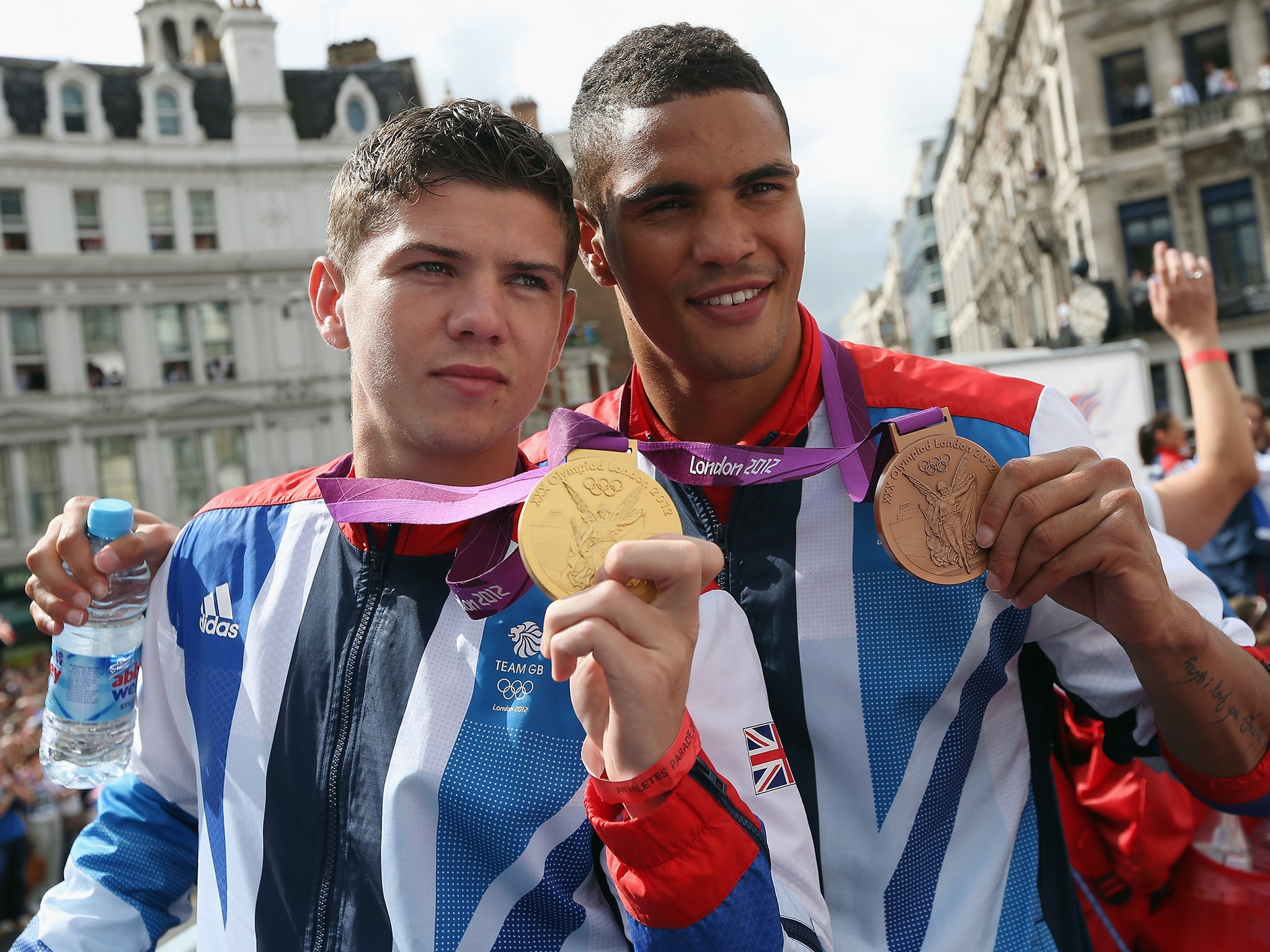Rio 2016: Where are Team GB's class of 2012 boxers now?
From box office bouts to baby care, the fortunes of the London 2012's 10-strong contingent have differed

A little girl called Mela can sit on her mother’s knee later this week and get her own expert commentary of the women in the lightweight division at the Olympics.
Mela is the seven-month old daughter of Natasha Jonas who was the first British woman to fight at the Olympics when she answered the bell for round one of her preliminary bout, and beat American Queenie Underwood on August 5 of that crazy boxing summer. Jonas then lost a slugfest with Irish icon and gold-medal winner Katie Taylor in the quarter-finals.
“I have beaten one of the girls boxing in Rio four times,” said Jonas, who two nights each week trains boxers at the Rotunda club in Liverpool. “I’m gutted when I see the women I have beaten getting ready for Rio, but there was no chance of boxing after the baby – I couldn’t be away all week and on the road all the time.”
The other two women in the British squad from the last Olympics are in Rio now, four years older, wiser and more seasoned. Nicola Adams, the first woman to win an Olympic gold, has resisted all tacky efforts to become a celebrity, quietly coming out, slowly improving and starts the tournament as the new world champion. Savannah Marshall is back at middleweight, still a top five fighter and still a reluctant talker, a silent enigma in the team.
Andrew Selby was seeded at number two in the flyweight division but met the unseeded teenage Cuban Robeisy Ramirez, looked lost and went out way before the medals. Selby remained amateur, winning a gold at the European championships in 2013 and finally turned professional a year ago; in May he won the British flyweight title in just his fifth fight and he is also the brother of IBF featherweight champion Lee Selby, who could be Carl Frampton’s next opponent.
At bantamweight Luke Campbell was expected to get a medal and after four wins he took gold. A year later he turned professional, but it was not a smooth transition and between his father being ill and switching trainers and gyms, he seemed to lose a little edge; last December he was dropped and beaten in a fight that exposed many of the hazards top boxers need to solve when they turn professional behind a protective screen. Campbell has won twice since, is now 28 and in the next six months his future will be decided.
Josh Taylor was just 21, the least experienced of the team and he lost his opening contest to Brazil’s underestimated Robson Conceicao, an outside bet for glory in Rio. Taylor won the Commonwealth games in 2014, turned professional and stopped his sixth opponent in six fights on Frampton’s undercard at the weekend in New York. “I still think about the Olympics, every day,” Taylor said.

The captain of the team was Tommy Stalker, seeded three at light-welter, and after a bye and a win he lost 23-22 in the quarter-final to a Mongolian. “I was in shock for ages – I still struggle when I think about it. I was so convinced that I would win an Olympic medal,” admitted Stalker. As a professional Stalker is still adjusting to the harsh game and has won 11, lost one and drawn two.
Fred Evans is the forgotten member of the team, a silver medal winner and the most troubled of the boxers. Evans lost in the welterweight final to Kazak Serik Sapiyev, resisted all offers to turn professional, was excluded from the Commonwealth Games two summers later because of an arrest for fighting and was working on roofs in obscurity. He finally surfaced last October, announced he was going professional with Chris Sanigar and promptly vanished again. “I’m going to go and find him this week,” said Jamie Sanigar, who works with his father.

At middleweight Anthony Ogogo had the hardest route to any type of medal and, between draining hospital visits to his sick mother, he took a bronze after beating the Ukraine’s world champion and number one seed, which led to a disgraceful attempt to have the decision overturned by Sergei Bubka. Ogogo went pro, secured a deal with Oscar De La Hoya in Los Angeles and fought on a Floyd Mayweather undercard in Las Vegas. He is unbeaten in 11, with seven ending quick but shoulder surgery has slowed his career twice.
Finally, to Anthony Joshua at super-heavyweight, the man that was not even in the team a year earlier and had very little chance when the draw was revealed in London. I can remember the cursing of the GB officials. Big Josh ignored the stats, took gold, turned professional after a bidding war and then, rather fortuitously, was gifted a version of the world heavyweight championship back in April after just 15 fights. “The Olympics changed my life, it’s that simple,” said Joshua.
In Rio twelve more fighters walk in the footsteps of the most successful team in British boxing history and the team of 10 from London, well, they just keep fighting for more glory and perhaps another baby or two.
Join our commenting forum
Join thought-provoking conversations, follow other Independent readers and see their replies
Comments
Bookmark popover
Removed from bookmarks